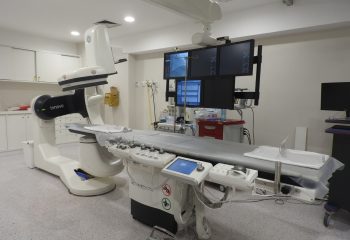After all this time, New South Wales residents can finally enjoy amazing dine-in restaurants, get that long awaited haircut and go adventuring further than 5km from home! However, it is bitter sweet for some business owners who are emerging out of the COVID-19 lockdown as they now face the risk of employees catching COVID-19. With greater awareness of the transmissibility of the Delta strain, employees are increasingly vulnerable to catching COVID-19 when working in a customer facing environment.
Although there are some variations between states, most impose statutory obligations.
In NSW, the Workers Compensation Act 1987 provides protection for contracting a disease in the workplace which was actually in place prior to the COVID-19 outbreak. For greater certainty, Section 19B was inserted into the legislation, effectively reversing the burden of proof to the employer for prescribed employment.
In other words, if a worker contracts COVID-19, who happens to work for the prescribed employment under section 19B (9), the worker is deemed to have contracted the disease in the course of the employment and the employment is deemed to be the substantial or main contributing factor to contracting the disease. The prescribed employment under section s19B includes:
- The retail industry (other than businesses providing only online retail)
- The health care sector, including, ambulance officers and public health employees
- Disability and aged care facilities
- Educational institutions, including, pre-schools, schools and tertiary institutions (other than establishments providing only on-line teaching services)
- Police and emergency services (including fire brigades and rural fire services)
- Refugees, halfway houses and homeless shelters
- Libraries
- Courts and tribunals
- Correctional centres and detention centres
- Restaurants, clubs and hotels
- The construction industry
- Places of public entertainment or instruction (including, cinemas, museums, galleries, cultural institutions and casinos)
- The cleaning industry
- Any other type of employment prescribed by the regulations for the purposes of this definition
The list is not exhaustive, but it also does not include a range of businesses which are by nature close contact businesses, such as:
- Beauty services
- Hairdressers
- Nail salons
- Therapeutic massage parlours
- Spa, nail, waxing and tanning salons
Duty To Provide A Safe Workplace
The emergence of COVID-19 creates a greater obligation upon employers to ensure that they are providing their employees a safe workplace. In the scope of a highly infectious airborne virus, this is an extremely monumental task, particularly for businesses which are inherently close contact. Nevertheless, an employer MUST do their best and have a COVID-19 safe plan in place. In the state of NSW, a COVID-19 safety plan is mandatory. The NSW government assists with common considerations in preparing a safety plan. Below is a link for close contact businesses for the preparation of a COVID-19 safety plan.
Considerations in the safety plan include:
- Physical Distancing
- Ventilation
- Hygiene and Cleaning
- Record Keeping
The plan however, requires the employer to make decisions that are most suitable for their business. Some businesses cannot have physical distancing because they are a physical contact business, for example therapeutic massage parlours. The only alternative is Personal Protective Equipment (PPE). Common PPE includes face masks, wearable face shields, gloves and disposable gowns. This is the level of protection required of the medical and health care sector. However, as the costs of PPE needs to be borne by the employer, providing the best protection for employees is often not financially viable.
Although some employers may class the people who work in the premises self-contractors, caution needs to be given as contractors can often be defined as “deemed employees”. Consideration as to whether a person is an actual contractor or a deemed employee are:
- Hours of work per week
- Whether they work in the same role at a different location
- Uniform
- Equipment
- The level of control and instruction the shop has over the worker.
Mandatory Vaccination
Many businesses have opened following the lockdown where it is a requirement for those entering the premises to show proof of vaccination. An important question for employers is whether they can make it a requirement for their staff to be fully vaccinated before returning to work.
Unfortunately, the Federal Fair Work Ombudsman does not assist employers to clarify their position in mandating employees to be vaccinated. On the other hand, vaccinations will reduce the risk of an employee contracting the virus and/or experiencing serious effects of the virus. It also reduces the risk of transmitting the virus among co-workers. However, a person has a right to refuse vaccination, hence the reason why Federal and State governments have not made vaccinations mandatory.
Further, if you were to reduce an employee’s work or entitlements, or terminate someone’s employment, you may have constructively or unfairly dismissed a worker for upholding their right to choose whether or not to vaccinate. The issue of vaccination in the workplace is a difficult issue to navigate, but a primary discussion for any employer with their employees.
*Disclaimer: This is intended as general information only and not to be construed as legal advice. The above information is subject to changes over time. You should always seek professional advice before taking any course of action.*








